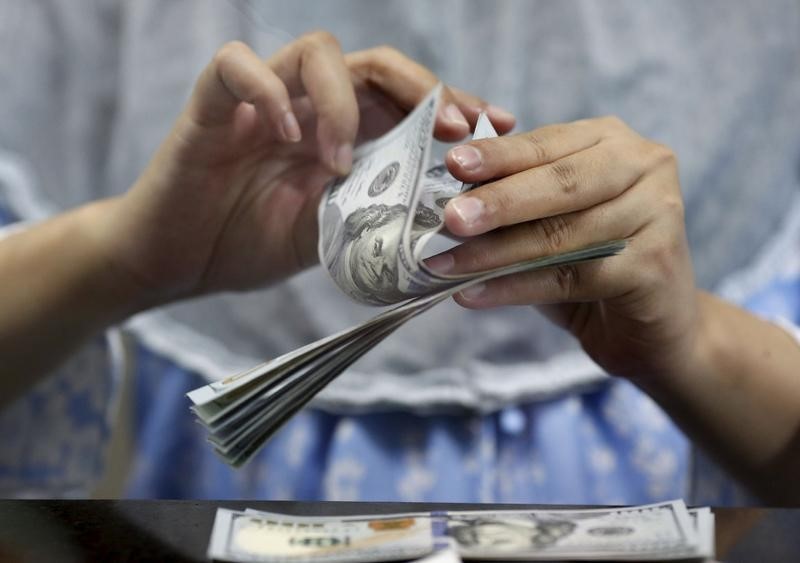By Zhang Mengying
Investing.com – The dollar was down on Thursday morning in Asia, after central bank chiefs signaled a resolution to bring down inflation.
The U.S. Dollar Index that tracks the greenback against a basket of other currencies inched down 0.06% to 105.04 by 12:35 AM ET (4:35 AM GMT).
The USD/JPY pair stabilize at 136.59.
The AUD/USD pair edged up 0.15% to 0.6891, and the NZD/USD pair inched up 0.03% to 0.6219.
The USD/CNY pair inched down 0.08% to 6.6952, while the GBP/USD pair inched up 0.05% to 1.2132.
The EUR/USD edged up 0.15, after losing 0.75% on the dollar the day before.
Christopher Wong, the senior FX strategist at Maybank, attributed the euro’s fall against the dollar to the market moving away from riskier assets after “central bankers warned of lasting inflation and that they would prioritize combating (it), resulting in broad dollar rebound overnight.”
Central banks’ hawkish stances have stoked recession fears and shaken financial markets in recent months. Global stocks are set to close out their worst quarter since the three months ended March 2020.
U.S. Federal Reserve Chair Jerome Powell and his European and U.K. counterparts warned that inflation could be long-lasting during the European Central Bank (ECB)’ s annual forum in Portugal. He added that it was important to bring down inflation.
Meanwhile, Fed Bank of Cleveland President Loretta Mester said officials should act forcefully to curb price pressures. Mester said that the Fed is “just at the beginning” of rising rates and she wants to see the benchmark lending rate reach 3% to 3.5% this year and “a little bit above 4% next year” even if that might drag the economy into a recession.
In Asia Pacific, China’s factory activity expanded for the first time in four months as lockdowns ended in major cities such as Shanghai. Official data released earlier in the day showed that the manufacturing purchasing managers’ index (PMI) rose to 50.2 in June from 49.6 in May, the first expansion since February.
Meanwhile, President Xi Jingping said zero COVID is still the most “economic and effective” policy for China although the country just slashed COVID quarantine time for inbound travelers.
In cryptocurrencies, Bitcoin dipped back below the symbolic $20,000 level on persistent market ructions.
